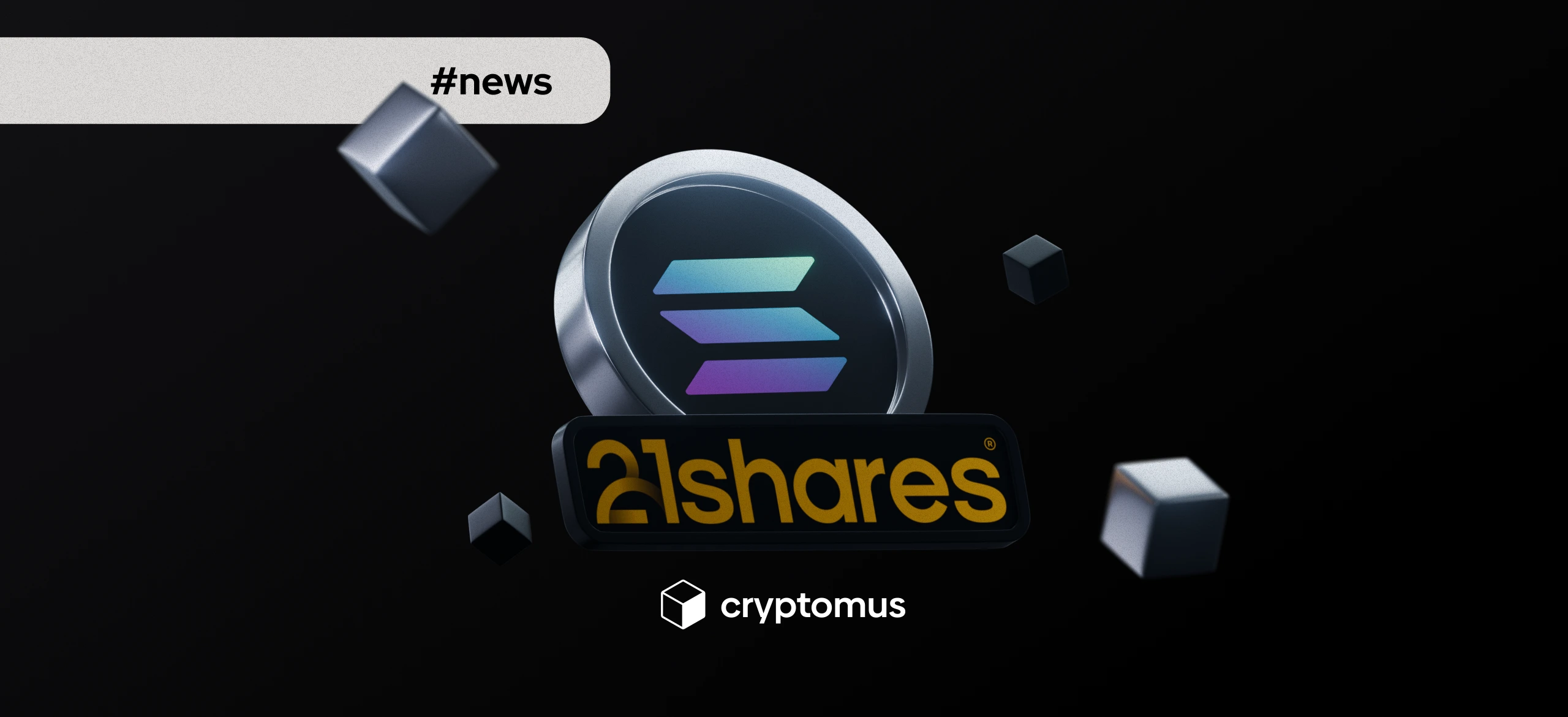
21Shares Prepares to Launch Sixth Spot Solana ETF Today
Table of Contents
21Shares intends to expand its presence in the U.S. market with the introduction of a new Solana (SOL) spot ETF. The filing with the U.S. SEC on Tuesday would make it the sixth Solana-focused ETF accessible to investors. The initiative comes as regulated crypto products gain attention and follows a series of new launches by competing asset managers.
New Solana ETF from 21Shares
21Shares has filed with the SEC, indicating it is prepared to launch its Solana ETF once it receives final regulatory approval. The prospectus shows the fund will charge a management fee of 0.21%, slightly lower than competitors such as Fidelity’s FSOL, which charges 0.25% and takes an additional 15% of staking rewards. This approach could attract investors looking for a cost-efficient way to access Solana under a regulated framework.
The ETF has already received approval from Cboe for listing, allowing trading to start immediately after the launch.
🚨JUST IN: The SEC website shows that @Cboe exchange has approved the listing and registration of the @21shares Solana ETF, clearing the way for its launch tomorrow. pic.twitter.com/GkSGJdp8Za
— SolanaFloor (@SolanaFloor) November 18, 2025
This follows 21Shares’ release of two crypto index ETFs last week, providing exposure to Bitcoin, Ethereum, Solana, and Dogecoin. These ETFs were the first registered under the Investment Company Act of 1940, marking an important step for the U.S. crypto ETF market.
With this launch, 21Shares joins other Solana ETFs from Fidelity, Canary Capital, and VanEck. Each product works differently: Canary Marinade Solana ETF stakes all holdings through Marinade Finance, while VanEck’s VSOL fund charges no fees until it reaches $1 billion. This variety shows strong demand for different ways to invest in SOL.
Solana ETF Performance and Inflows
Interest in Solana ETFs remains strong despite recent price fluctuations. Although SOL dropped over 12% in the past week, SOL-focused ETFs recorded inflows of $26.2 million on November 18, led by Bitwise’s BSOL at $23 million. This marks the fifteenth consecutive trading day of positive inflows, indicating that investors value these regulated products for both exposure and potential staking rewards.
Demand for Solana ETFs contrasts with Bitcoin and Ethereum spot ETFs, which have experienced occasional outflows during the same period. The trend shows that investors are open to diversifying into blockchain ecosystems beyond Bitcoin and Ethereum. It also highlights the appeal of staking, as funds such as FSOL and SOLC offer additional yield, attracting those seeking more than price appreciation.
With a range of ETFs now available, investors can choose based on fees, staking structures, and fund management. Some prefer simple spot exposure, while others focus on staking yields or minimizing costs.
The Competitive ETF Landscape
With 21Shares entering the market, the U.S. now has six active Solana ETFs. Fidelity, Canary Capital, Bitwise, and VanEck already offer products, each with its own focus. As the largest asset manager with a SOL ETF, Fidelity has set a standard with its FSOL ETF, while smaller firms concentrate on niche strategies such as delegated staking or no-fee promotions.
This growing competition mirrors wider trends in crypto investing, where regulatory clarity and investor protection are increasingly important. ETFs allow both retail and institutional investors to access crypto in a regulated way. For 21Shares, entering this market may also signal plans to expand further in the U.S. with additional crypto offerings.
Success in this field depends on various things. Reputation, operational efficiency, and transparency are now key factors. Investors compare not only costs but also the reliability of fund operations, particularly during periods of market stress.
What Does It Mean for Investors?
The launch of 21Shares’ Solana ETF gives investors another regulated way to invest in SOL. With six products now available, the market is clearly more competitive. Each product has different features, letting investors choose based on their goals, risk level, and fees.
Interest in regulated crypto instruments is clearly rising. For both institutional and retail participants, this growth could strengthen confidence in crypto as a legitimate, mainstream asset class.
Simplify Your Crypto Journey
Want to store, send, accept, stake, or trade cryptocurrencies? With Cryptomus it's all possible — sign up and manage your cryptocurrency funds with our handy tools.
Get Started









